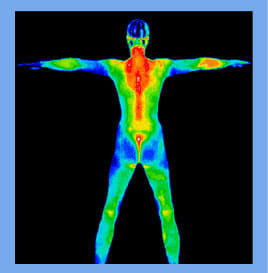What a person does on his or her own property, and certainly in the privacy of his or her own home, should be sacrosanct, yes? One would think so, but one would be wrong. Ordinarily, a police officer needs probable cause to initiate a search or seizure (or to procure a warrant). Simply believing that something is amiss isn’t enough.
But let’s take a step back, shall we? This all stems from the fourth amendment, which states in part, “The right of the people to be secure in their persons, houses, papers, and effects, against unreasonable searches and seizures, shall not be violated, and no Warrants shall issue, but upon probable cause, supported by Oath or affirmation, and particularly describing the place to be  searched, and the persons or things to be seized.” The definition of probable cause tends to vary, in that it may refer to the probability of sheer numbers, or it may refer instead to the likelihood of a person or persons to do a certain thing based on social factors – customs and the like. But as it turns out, not everywhere that you might consider ”private” really is. Take, for instance, your driveway. You and your other half come home and, feeling frisky, try to have a little fun in your back seat. Well, you do until you hear an ominous “tap, tap, tap” on your window. Never mind that it is after 11:30 at night, and there is no one else around who could remotely see you (even if it weren’t for the steamy windows). John Q. Law has decided that you’re being indecent and tells you to go inside your house. Why? You are in your car, you are not bothering anyone, and as has already been mentioned, no one can see you! But somehow this cop who just happened to wander by (what was he doing out here anyway?), figured you for doing something illegal. Thing is, you are on your property, right? But that really isn’t enough.
searched, and the persons or things to be seized.” The definition of probable cause tends to vary, in that it may refer to the probability of sheer numbers, or it may refer instead to the likelihood of a person or persons to do a certain thing based on social factors – customs and the like. But as it turns out, not everywhere that you might consider ”private” really is. Take, for instance, your driveway. You and your other half come home and, feeling frisky, try to have a little fun in your back seat. Well, you do until you hear an ominous “tap, tap, tap” on your window. Never mind that it is after 11:30 at night, and there is no one else around who could remotely see you (even if it weren’t for the steamy windows). John Q. Law has decided that you’re being indecent and tells you to go inside your house. Why? You are in your car, you are not bothering anyone, and as has already been mentioned, no one can see you! But somehow this cop who just happened to wander by (what was he doing out here anyway?), figured you for doing something illegal. Thing is, you are on your property, right? But that really isn’t enough.
What if you are in your house? What is to keep the fuzz from battering down your door and demanding you turn out your pockets like the schoolyard bully (who happens to have a 9 mil and a badge). Infrared cameras have clued him into something suspicious, so he thought he’d come take an up-close look for himself. But you weren’t doing anything illegal, right? The way that infrared, or IR, cameras work is by measuring the electromagnetic spectrum (humans can only see a narrow margin of the spectrum), picking up the heat signature from whatever the camera is “seeing,” and differentiating it to things of cooler or hotter temperatures via a color scale. Infrared is invisible to the naked eye, but we can feel it as heat, which is why most infrared cameras come with a temperature gauge– so you can see how much heat something is giving off.
As you might imagine, this has very practical uses in search and rescue operations, firefighting, and in the military, but a cop with an IR camera, especially one of your less scrupulous officers, might tend to take his or her authority a little too far. Infrared cameras are already used on helicopters after dark, in order to track fleeing suspects that their ordinary flood light may not see.
But what about civilian use? Last winter, the city of Boston, Mass., wanted to take readings from residential areas using a slew of IR cameras planted around the city– high up for aerial shots and at street level. Officials claimed that they would use the findings of their thousands of photos to gauge heat loss from homes. The information would then be shared with individual homeowners in the hopes of getting them to enroll in energy efficiency programs or to adopt certain practices (like using double paned windows or what have you). Really? The city of Boston truly cares about whether your house is losing heat? But they weren’t concerned about this before IR cameras were available for “home use”? Hmmmm. Well, thankfully the ACLU took up the matter, arguing that the cameras would spy on us and see things they weren’t meant to see.
Now, many of you have probably been to the hospital after a bad accident. Maybe you broke or sprained something, or you had other issues that made it necessary for the docs to take a peek inside your body. They of course used an x-ray machine. X-Rays, like ultraviolet (what we see) and infrared light, are all part of the same spectrum. But that does not mean that infrared cameras are x-ray cameras. X-rays exist at a higher bandwidth than infrared waves. As a matter of fact, a normal, properly functioning IR camera couldn’t see through a sheet of glass, let alone the wall of a house. If the glass in question is the same temperature as the surrounding area, the camera won’t see it or anything beyond it.
Are more and more cities going to adopt this form of checking in on us? You betcha! Do we like it? Not sure about you, but when I am in my own home, doing whatever I am doing, it is, as my mother used to say, “nunya”– meaning it’s none of your business – and this goes for the city, the police, and definitely anyone on a federal level. Like you, I abide by the laws and until I break them, leave me alone! Right?
So, to avoid this, make sure you insulate your house and any problem spots really, really well. Or you know, build any rooms you don’t want people spying on underground.
 Off The Grid News Better Ideas For Off The Grid Living
Off The Grid News Better Ideas For Off The Grid Living



